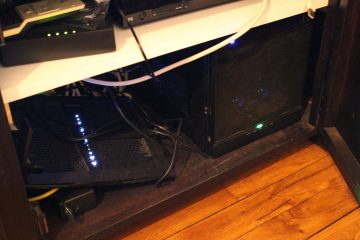Context
- I have a FreeNAS setup
- I want a cheap offsite backup solution
- Backblaze only offer S3 storage solution
- I have virtual machines on zvol to backup (not just files)
- ZFS send/receive is very convenient if you have another zfs system in other
location
I choose zfsbackup-go, this tool use zfs send/receive to generate archives on S3 storage space. This software is not ready for very critical use, still in « beta » missing some features like deletation on remote location from the command line.
Advantages
- Can backup zvol as well as dataset
- Differential backups based on snapshots
- Encrypted backups
- Compressed backups
- Compatible with all S3 solutions
Drawbacks
- You can’t use backups without re-import in a ZFS pool (so real backups
not a archives solution) - Still in beta
How to
- (Optional) Build zfsbackup-go for freebsd with crosscompile from a linux
- You need GO
git clone git@github.com:someone1/zfsbackup-go.gitGOOS=freebsd GOARCH=amd64 go build -o zfsbackup main.go
- Generate a gpg key
gpg --full-generate-key -
Export the private/public gpg keys
gpg --list-keysgpg --export-secret-keys -a keyidgpg --export -a keyid
-
Create the S3 credentials you need
I use BackBlaze because it’s the cheapper one, but you can use every S3 storage service or implementation you want. -
- You need to ensure the schedule is after the snapshot
- I have develop a very little script to have a more simpler crontask because zfsbackup only support one Dataset at a time
- Command
DATASETS="Tank/Dataset1 Tank/Group/Data1" /root/zfsbackup.sh
#!/bin/bash export B2_ACCOUNT_ID= export B2_ACCOUNT_KEY= export PGP_PASSPHRASE= PGP_EMAIL= PGP_PUBLIC_RING= PGP_PRIVATE_RING= S3_DEST= for dataset in $DATASETS do /root/zfsbackup send --encryptTo $PGP_EMAIL --signFrom $PGP_EMAIL --publicKeyRingPath $PGP_PUBLIC_RING --secretKeyRingPath $PGP_PRIVATE_RING --fullIfOlderThan 2160h $dataset $S3_DEST done
Conclusion
- This solution offer very good performance like 15MB/s during backup operation with only 10% cpu usage on Xeon D1521. My Orange ISP uplink is the limitation here.
- With incremental snapshot, BackBlaze is a very effective solution at low cost like less than 60€ a year for a 100GB on disk backuped VM.
- DO BACKUPS
- DO BACKUPS
- DO BACKUPS



1 commentaire
Rudi Pittman · 30 mai 2020 à 21 h 25 min
I think I posted my question to another article by accident. Is there a way to transfer the configured containers from the old rancheros image to the new one?